Page 82 • (908 results in 0.038 seconds)
-
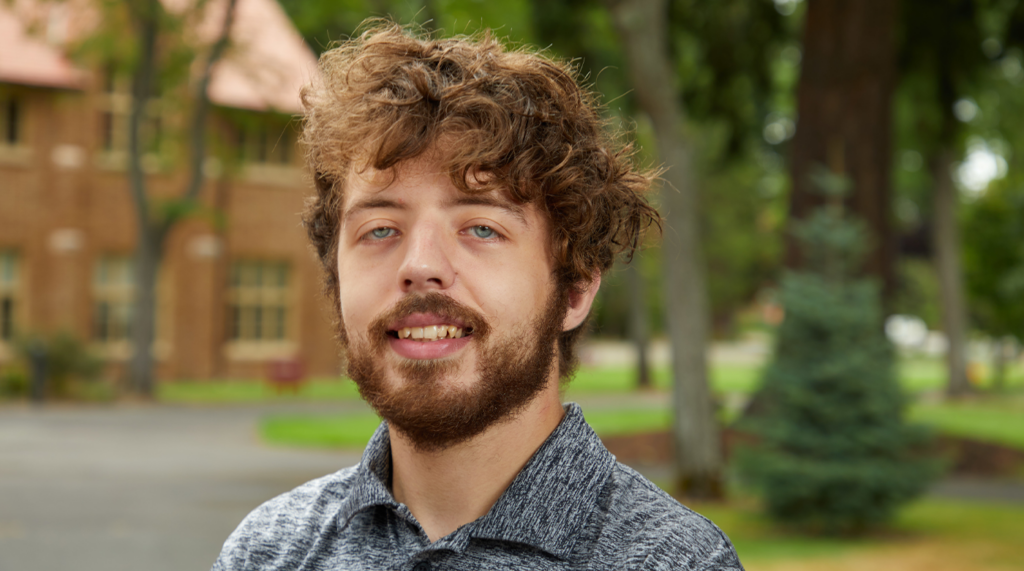
before, but on a professional level,” Lindhartsen said. In just the 30-year history of the individualized major, PLU students have designed degrees in digital media, Indigenous studies, global health, and environmental education. To do this, students draw from PLU courses and develop their expertise through extensive and rigorous conversations and planning with a committee of faculty who support and guide them. “You take courses from all around the university, as well as experiential learning, like
-

people will respect that.”Lute Powered is a project highlighting PLU alumni at some of the most well-known organizations across the Puget Sound region. Clarissa Gines ’12 is the second of three Lutes being featured from the City of Tacoma. Previous Lute Powered series highlighted PLU alumni at Amazon and MultiCare Health System. × × Read Previous City of Tacoma environmental scientist Tom Chontofalsky ‘03 loves asking questions Read Next Lisa Woods ’92 helps move Tacoma forward as the city’s Chief
-
people are at low risk for contracting the virus. Higher levels of risk are associated with some behaviors or environmental conditions; the following chart, provided by the Chicago Department of Health, offers a visual summary of risk for transmission based on activity.Stop the Spread | Stop the Stigma | Know Your Risks Activity Risk Raising for Monkeypox Transmission Direct contact with infectious rash, scabs, or body fluids Sexual or intimate contact (please note that condoms do not protect against
-
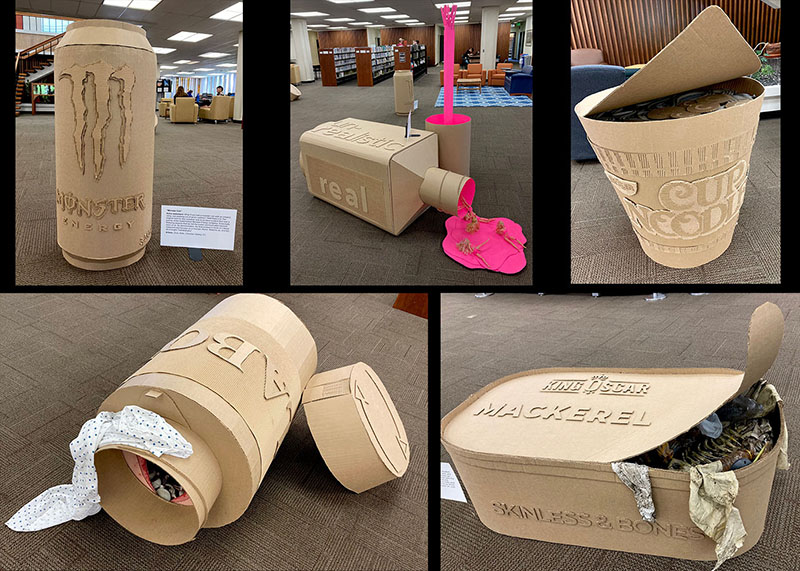
go through. These issues are very common and real, and because of that, we wanted the piece to portray a very grounded and real experience. By adding genitalia and the essential items for someone on their period, we hope the piece reflects the experiences and emotions of many. Artists: Gianni Lafave, Jillian Chong, Nataly Reynoso ‘24 “Mackerel on the Beach” Artist statement: This project is about the environmental situation with what is in our ocean and how that affects the water, land, and
-
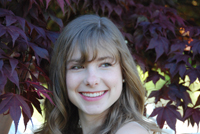
high school. By chance I was sitting with Dr. Matt Smith and was able to speak with him about research, the biology department, and my own interests. Anna Kreutz ’12 is from Chehalis, Wash. Another piece that made PLU stand out was the school’s Lutheran foundation, as well as global and environmental focus — all of which aligned with my own values. I’d heard wonderful things about PLU from a number of people back home, but stepping onto campus was what solidified my decision. The people here all
-
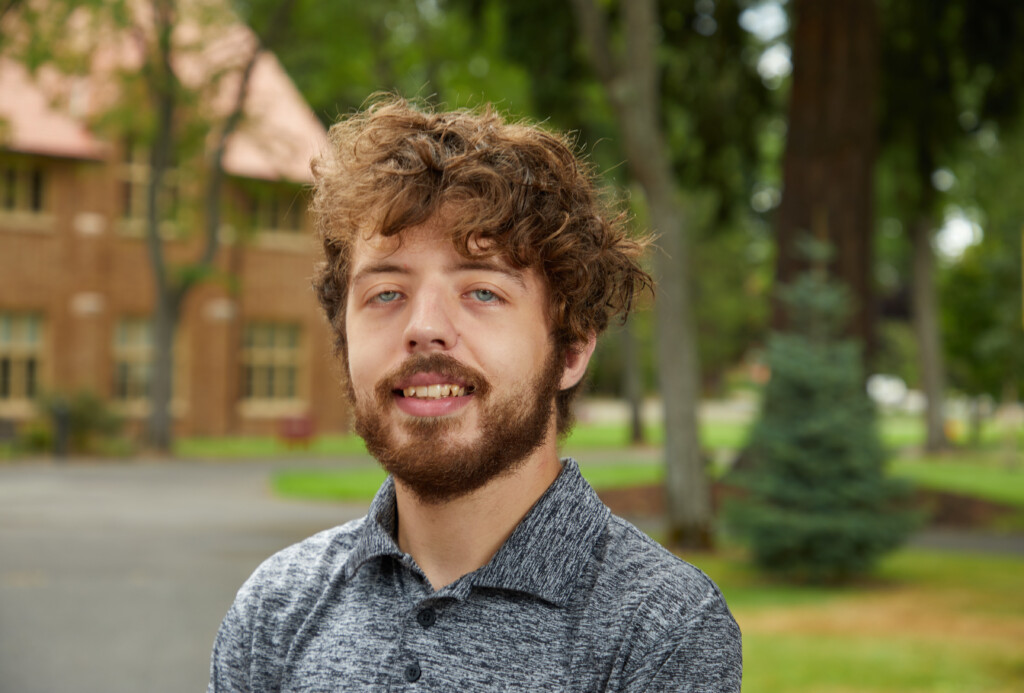
essentially pulled back into Tacoma to do what I was doing before, but on a professional level,” Lindhartsen said. In just the 30-year history of the individualized major, PLU students have designed degrees in digital media, Indigenous studies, global health, and environmental education. To do this, students draw from PLU courses and develop their expertise through extensive and rigorous conversations and planning with a committee of faculty who support and guide them. “You take courses from all around
-
(planting) from a farmer’s perspective.” Formed in 2000 by the Emergency Food Network, Mother Earth Farm is an eight-acre organic farm that produces more than 150,000 pounds of fresh fruit and vegetables each growing season. All the produce is distributed directly to local food banks and hot meal programs. Through service learning projects and the student environmental club GREAN, PLU students have volunteered at the farm. Working there is as much an educational experience as it is manual labor, Mares
-
away who meet artisans will have the opportunity build a relationship and possibly bring the items to store. “This is an outlet for students to get in contact with the community around us,” Valdez said. “Be that Parkland, or be that the global community.” Read Previous Grant supports environmental research Read Next Sustainability Fellows to tackle bikes, recycling COMMENTS*Note: All comments are moderated If the comments don't appear for you, you might have ad blocker enabled or are currently
-
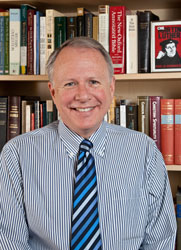
both places you can ‘follow your bliss,’ but here it is linked to things that are fundamental to who, as a university, we are.” He points to PLU’s mission statement, using its environmental language as an example – though he notes that any portion of it would be relevant. “When we talk about ‘care for the earth,’ it is linked to who we are as a university” Torvend said. “There is a moral and ethical connection [to such ideas] because of our middle name.” With the chair comes a certain level of
-
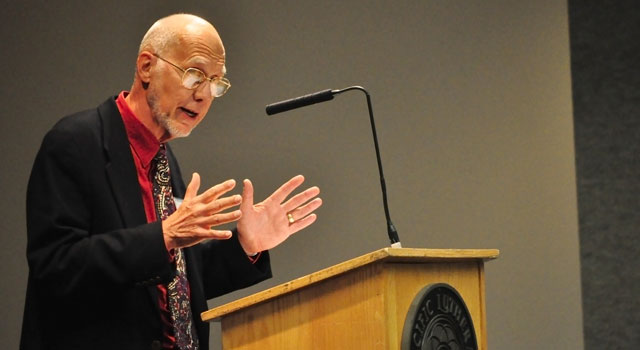
problem,” he said of how our species functions with the world. We are now facing not only an environmental crisis, but a “civilization crisis,” he said. Destruction is not a sustainable way of life, he said. Religion has and can play a big role in how the species views itself within the context of the natural world. To sustain and re-vitalize, there must be a religious and a moral transition for the care of a healthy Earth, Rasmussen said. God and the ecosphere must be viewed as a whole. It is the
Do you have any feedback for us? If so, feel free to use our Feedback Form.


